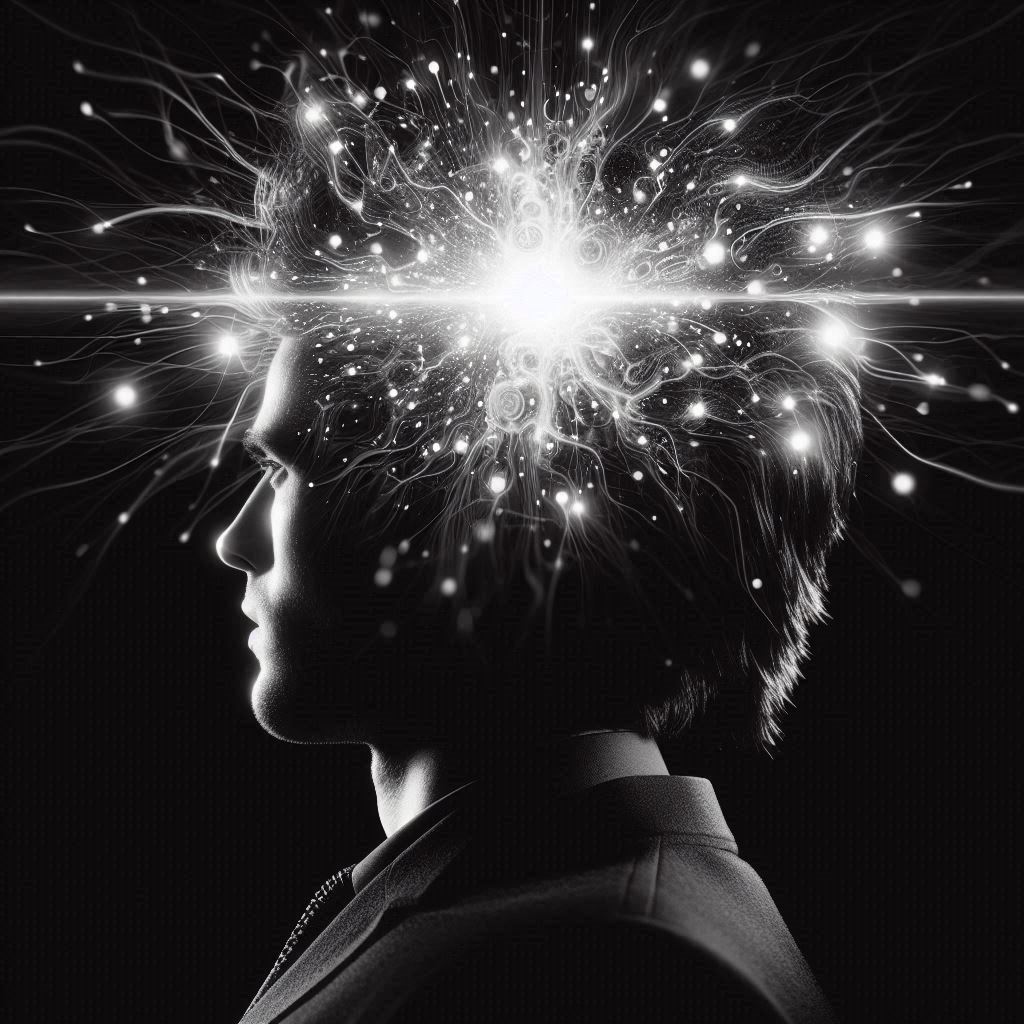Misusing alcohol to manage anxiety can lead to a host of problems, including dependence, worsening mental health, and a cycle that’s tough to break. In this blog post, we’ll explore the dangers associated with this seemingly benign choice and offer insights into safer, more effective ways to cope with anxiety. Understanding these risks is the first step towards healthier choices and improved well-being.
Why People Self-Medicate Anxiety with Alcohol
When faced with the overwhelming weight of anxiety, many individuals turn to alcohol as a means of finding relief. This section explores the various factors that drive people to self-medicate their anxiety with alcohol, shedding light on why this practice is so common.
The Temporary Relief Effect
One of the primary reasons people use alcohol to self-medicate is the temporary relief it provides. When consumed, alcohol acts as a sedative, calming the central nervous system and producing feelings of relaxation. This can be incredibly appealing for someone feeling the intense grip of anxiety.
- Immediate Calm: For those experiencing anxiety attacks, a drink can seem like a quick fix. The soothing effect can be likened to pressing the pause button on a chaotic episode.
- Reduced Inhibitions: Alcohol lowers inhibitions, which can make social situations less daunting for those who feel anxious in crowds or gatherings.
It’s important to note, however, that while alcohol might offer a brief escape, its effects are fleeting and often lead to a worsening cycle of anxiety and dependence. Read more about the temporary effects of alcohol on anxiety.
Social and Cultural Factors
Societal norms and cultural practices also play a significant role in why people turn to alcohol to manage their anxiety. In many cultures, drinking is a normalized part of social interaction and celebration.
- Social Acceptance: Drinking alcohol is often seen as a socially acceptable way to unwind and have fun. This acceptance can blur the lines between casual drinking and using alcohol as a crutch.
- Cultural Expectations: In some cultures, there is a strong cultural inclination towards drinking as a way of coping with stress and anxiety. This can place additional pressure on individuals to use alcohol in a similar way.
These factors can create an environment where self-medicating with alcohol becomes a normalized and even expected behavior, making it harder to recognize and address the underlying issues. Explore the influence of social and cultural contexts on alcohol use.
Lack of Access to Professional Help
Another critical reason people self-medicate with alcohol is the lack of access to professional mental health care. Barriers to care can include:
- Cost of Treatment: Mental health services can be expensive, and not everyone has insurance that covers the necessary treatments.
- Stigma: There is still a significant stigma surrounding mental health issues, which can prevent individuals from seeking help.
- Availability: In some areas, there simply aren’t enough mental health professionals to meet the demand.
When professional help is out of reach, individuals may turn to alcohol as a more accessible and immediate solution for their anxiety. However, this can lead to a cycle of dependency and increased mental health problems. Learn more about overcoming barriers to mental health care.
Understanding why people self-medicate with alcohol is the first step towards addressing this dangerous coping mechanism. By recognizing the temporary relief effect, societal influences, and barriers to professional help, we can better support individuals in finding healthier ways to manage their anxiety.
The Biological Impact of Alcohol on Anxiety
Alcohol is often seen as a quick fix for anxiety, but its impact on the brain and body is far-reaching and complex. Understanding how alcohol interacts with brain chemistry and recognizing the resulting cycle of anxiety can illuminate the risks involved.
Alcohol’s Effect on Brain Chemistry
When you drink alcohol, it affects important chemicals in your brain known as neurotransmitters. These chemicals include gamma-aminobutyric acid (GABA) and serotonin, both of which play key roles in regulating anxiety.
- GABA: This neurotransmitter has a calming effect on the nervous system. Alcohol increases GABA activity, leading to feelings of relaxation and reduced anxiety. However, this effect is temporary. As the alcohol wears off, GABA activity decreases, often resulting in heightened anxiety levels.
- Serotonin: Known as the “feel-good” chemical, serotonin influences mood and anxiety. Alcohol initially boosts serotonin levels, but over time, it can deplete them, contributing to feelings of depression and anxiety.
For more detailed insights on how alcohol impacts brain chemistry, explore this resource.
The Vicious Cycle of Anxiety and Alcohol
At first, alcohol might seem like a solution for anxiety. It provides instant relief, making social situations easier and quieting racing thoughts. But this relief is short-lived and comes with a catch.
- Immediate Relief: The initial calming effect is the main reason people turn to alcohol. It can be like a quick escape from the pressures of anxiety.
- Increased Tolerance: Over time, you need more alcohol to achieve the same calming effect. This can lead to increased consumption and dependence.
- Rebound Anxiety: As alcohol leaves your system, anxiety often returns even stronger. This is because your brain’s natural balance of calming and activating chemicals is disrupted.
This cycle can trap you in a negative feedback loop, where you drink to relieve anxiety, but the drinking actually makes your anxiety worse in the long run. For more information on the relationship between anxiety and alcohol use, read this article.
Physical Health Consequences
Chronic alcohol use doesn’t just affect your brain; it has wide-ranging impacts on your physical health. Here are some of the most serious consequences:
- Liver Damage: Long-term alcohol consumption can lead to liver diseases such as fatty liver, hepatitis, and cirrhosis. The liver is crucial for filtering toxins, and damage to this organ can have severe health repercussions.
- Cardiovascular Issues: Heavy drinking increases the risk of high blood pressure, heart disease, and stroke. The heart and vascular system are put under strain, leading to potential long-term damage.
- Other Health Risks: Chronic alcohol use is also linked to digestive problems, weakened immune system, and various cancers.
Understanding the broader physical health risks makes it clear that alcohol is not a safe or effective method for managing anxiety. For an extensive look into the physical consequences of alcohol, visit this page.
Recognizing the biological impact of alcohol on anxiety is crucial for making informed choices about how you manage your mental health. Knowing how alcohol affects brain chemistry, the cycle of anxiety, and the physical health risks it poses can help steer you towards healthier coping mechanisms.
Long-Term Psychological Risks
Using alcohol to self-medicate anxiety might provide temporary relief, but it can lead to serious long-term psychological risks. These risks go beyond hangovers and momentary lapses in judgment, affecting the quality of life and mental well-being.
Development of Alcohol Dependence
One of the most alarming risks is the development of alcohol dependence. What starts as a casual drink to calm nerves can quickly spiral into a necessity that your body and mind crave.
- Increased Tolerance: Over time, your body builds a tolerance to alcohol. This means you need more to achieve the same calming effect, which can lead to higher and more frequent consumption.
- Physical and Psychological Dependence: Dependence can become both physical and psychological. Your body begins to rely on alcohol to function normally, and mentally, it becomes your go-to solution for dealing with stress and anxiety.
This dependence can trap you in a harmful cycle. For more insights on how this happens, learn about self-medication and addiction.
Worsening of Anxiety Symptoms
While alcohol might initially seem to ease anxiety, it can actually worsen your symptoms in the long run. Chronic alcohol use disrupts the brain’s natural balance, often leading to increased anxiety and panic disorders.
- Rebound Anxiety: As the effects of alcohol wear off, you might find that your anxiety returns even stronger. This is known as rebound anxiety.
- Exacerbation of Panic Disorders: Regular alcohol use can worsen panic disorders, making everyday situations feel overwhelming and unmanageable.
Understanding these effects is crucial to avoiding the vicious cycle of anxiety and alcohol. For more detailed information, read about the relationship between alcohol and anxiety.
Impact on Relationships and Daily Life
Alcohol misuse doesn’t just affect you; it impacts those around you and your ability to function daily. The strain it can place on relationships and day-to-day activities is significant.
- Strained Relationships: Consistent alcohol use can lead to conflicts with family, friends, and co-workers. Your behavior when under the influence can drive a wedge between you and your loved ones.
- Impaired Daily Functioning: From missing work to neglecting personal responsibilities, the dependency on alcohol can derail your daily life. Simple tasks might start to feel like monumental challenges.
These relational and functional impacts can be long-lasting and difficult to reverse. To explore more about how alcohol misuse affects mental health, visit this page.
Understanding the long-term psychological risks of using alcohol to self-medicate is crucial. Recognizing the potential for dependence, worsening of anxiety symptoms, and the impact on relationships and daily functioning can guide you towards healthier ways of managing anxiety.
Healthier Alternatives to Self-Medicating with Alcohol
When managing anxiety, turning to alcohol might seem like an easy solution, but it’s fraught with significant risks. Fortunately, there are healthier alternatives that can help you manage anxiety effectively. Here’s how you can navigate anxiety without resorting to alcohol.
Professional Mental Health Treatment
Seeking help from mental health professionals is crucial in managing anxiety effectively. Therapy and medication can provide long-lasting relief and tools to cope with anxiety.
- Therapy: Cognitive Behavioral Therapy (CBT) is highly effective in treating anxiety disorders. CBT helps you identify and challenge negative thought patterns and behaviors. Learn more about CBT for anxiety.
- Medication: Sometimes, medication may be necessary to manage anxiety symptoms. Antidepressants or anti-anxiety medications prescribed by a psychiatrist can help stabilize your mood and reduce anxiety.
Seeking professional help can provide you with the tools and support you need to manage anxiety constructively. For more information on the types of professionals who can help, visit Choosing a Therapist.
Lifestyle Changes and Coping Strategies
Making positive lifestyle changes and developing coping strategies can significantly impact how you manage anxiety. Here are some practical tips:
- Exercise Regularly: Physical activity can reduce anxiety. Activities like walking, jogging, or yoga can be beneficial.
- Mindfulness and Meditation: Practicing mindfulness or engaging in meditation can help you stay grounded and manage anxious thoughts. Learn about effective techniques here.
- Healthy Diet: Eating a balanced diet, rich in fruits, vegetables, and lean proteins, can improve your overall wellbeing. Avoid alcohol, caffeine, and sugary foods.
- Adequate Sleep: Prioritize getting enough sleep each night. Lack of sleep can exacerbate anxiety symptoms.
- Social Support: Stay connected with friends and family. Social interaction can provide emotional support and reduce feelings of isolation.
These lifestyle changes may seem simple, but they can make a substantial difference in managing anxiety. For more ideas on lifestyle changes, visit 5 lifestyle changes that may help manage anxiety.
Support Groups and Community Resources
Joining support groups and utilizing community resources can provide the social support and guidance needed to handle anxiety.
- Support Groups: Being part of a support group allows you to share experiences and gain insights from others facing similar challenges. The Anxiety and Depression Association of America (ADAA) offers online support groups that provide a safe space for discussing your struggles.
- Community Resources: Many organizations offer resources and helplines for mental health support. The Substance Abuse and Mental Health Services Administration (SAMHSA) has a National Helpline providing free and confidential treatment referrals.
Utilizing these resources can help you feel less alone and provide practical advice for managing anxiety. To find local support groups, you can visit Find Support Groups.
By exploring these healthier alternatives, you can manage your anxiety more effectively and avoid the risks associated with using alcohol as a coping mechanism.
Conclusion
The risks associated with self-medicating anxiety with alcohol are profound and multifaceted. While the temporary relief provided by alcohol can be appealing, it ultimately exacerbates anxiety and leads to a host of severe physical and psychological consequences. From dependence and rebound anxiety to liver damage and strained relationships, the long-term dangers far outweigh any short-lived benefits.
Healthy alternatives and professional mental health treatments are not only safer but more effective in managing anxiety. Embracing lifestyle changes, seeking therapy, and utilizing community resources can pave the way to better mental health and well-being. Encouraging those struggling with anxiety to pursue these healthier pathways is crucial in breaking the cycle of dependence and fostering a more resilient, fulfilling life.








